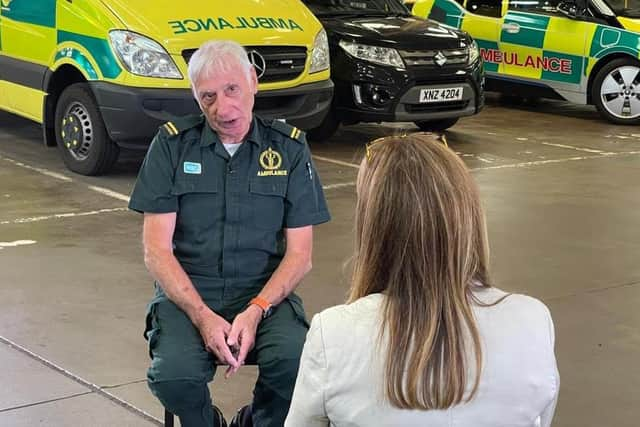‘Overdose is a medical emergency, we lose a lot but we also win a lot’
and live on Freeview channel 276
Neil Potter, a former addict who is now a volunteer with the social justice charity Extern, was speaking to UTV for a special programme that aired last night on the growth of the drug problem in Belfast.
And the 50-year veteran of the Northern Ireland Ambulance Service, 72-year-old Brian Maguire, also described how Belfast’s drug scene has got worse over the years and what it is like to be faced with an overdosed addict.
Advertisement
Hide AdAdvertisement
Hide Ad“An overdose for us is a medical emergency, just like an asthmatic attack, an epileptic seizure, whatever,” he told the UTV ‘Up Close’ programme.


“We treated it with the same urgency as a medical emergency.
“We lose a lot, but we also win a lot, and that’s down to the training, the medication, the experience.”
The in-depth programme opened with a report on the work being done to keep the people of the city safe featuring Mr Potter, one of many Extern volunteers helping clean up the streets and support addicts.
Advertisement
Hide AdAdvertisement
Hide AdHe explained how the life-saving drug naloxone is helping reverse opioid abuse, saying: “We’ve reversed so many overdoses and so many lives have been saved because of naloxone.”
The former addict told the broadcaster that he has noticed a massive increase in cocaine use, as well as what is known as ‘poly substance abuse’ where users will use different drugs at the same time.
Deaths from drugs in Northern Ireland have more than doubled in a decade. In 2020, 218 people died due to drug misuse, and so far this year in Belfast, 34 people have lost their lives, 15 of them in a six-week period.
Belfast Homeless Services, a volunteer-led charity group offering support to the vulnerable and homeless in Belfast, was also featured in the television broadcast.
Advertisement
Hide AdAdvertisement
Hide AdServices coordinator, Liz Rocks, called for a joined-up approach to deal with all the inter-related issues.
“There’s a whole combination of factors,” she said.
“There’s a housing issue, all the serious mental health issues, there’s alcohol, there’s drug issues or alcohol issues, lack of resources, and nobody seems to be combined in anything to do it together. The only way they’re going to stop using is if the proper resources are put in place for them, to give them the option of stop using.
“What needs to happen is our Executive need to get their act together.”